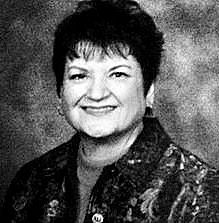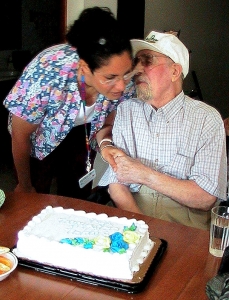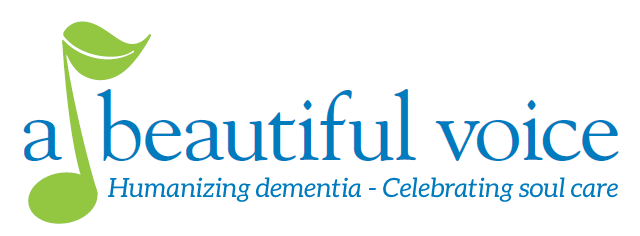
The Power of Artful Listening
Between friends, I was telling her via phone about Dad’s physical care. He was a large man who had become quite weak. By this time, I was frequently helping my 200-pound father to get back on his feet after a growing number of falls.
On weekdays, we had an excellent team of caregivers we called “The Dream Team,” each one making a unique contribution. We had not qualified for any home health services or any programs offering financial relief.
I talked at length about Dad’s needs and level of functioning before Stephanie responded with an observation I was not expecting. I had not considered that we were even close to meeting criteria for hospice admission. How could we possibly be qualified?! I held a common misconception – that hospice admission occurs during the final few days prior to death.
She was by this time the Executive Director of a hospice organization in the Chicago area. I learned from her that if a person with dementia met a set of admission criteria in compliance with Medicare regulations, the cost of hospice visits would be covered by Medicare.
If We Were to Qualify, Why Would We Not Accept?

Steph provided a local number for me to call to request an evaluation in our home. The hospice RN who did the evaluation then consulted with Dad’s physician regarding her assessment. The physician agreed that he met the admission criteria, after which the hospice support began within a couple days.
A Sacred Period
As it turned out, Dad received hospice care for 18 months until his death in early 2005. These months became a sacred period in our time together. Susan Mazur, CNA, who came for Dad’s bath gave him the ultimate in care and made him feel like a new man in every visit. It was such a positive experience for him and for every person present – whenever she arrived to make him look and feel beautiful.

We were also provided with supplies and equipment, including a wheelchair – which, by that time, we were ALL ready to accept.
A Defining Moment
Whatever would “the ranchers” have done if Stephanie had not stopped to listen at that defining moment? It led to the best possible outcome – the ultimate in care.
The general public is often not aware of hospice, since it is still a relatively young movement. My decision to write about this personal experience is based on my belief that everyone deserves the kind of care in their final days which Dad received in his.
For more information about hospice, click here.
_________________
Stephanie Mayercik, RN, BSN, MS
Stephanie’s experience has included serving in the following positions: Executive Director, Harbor Light Hospice; Nursing Director, Summa Health System; Director of Clinical Services, Charter Mental Health Hospital; Nurse Manager, United States Air Force. Her MS was earned at University of Notre Dame; BSN, Creighton University; RN, Akron City Hospital School of Nursing.
Author: Susan Troyer




Leave A Comment